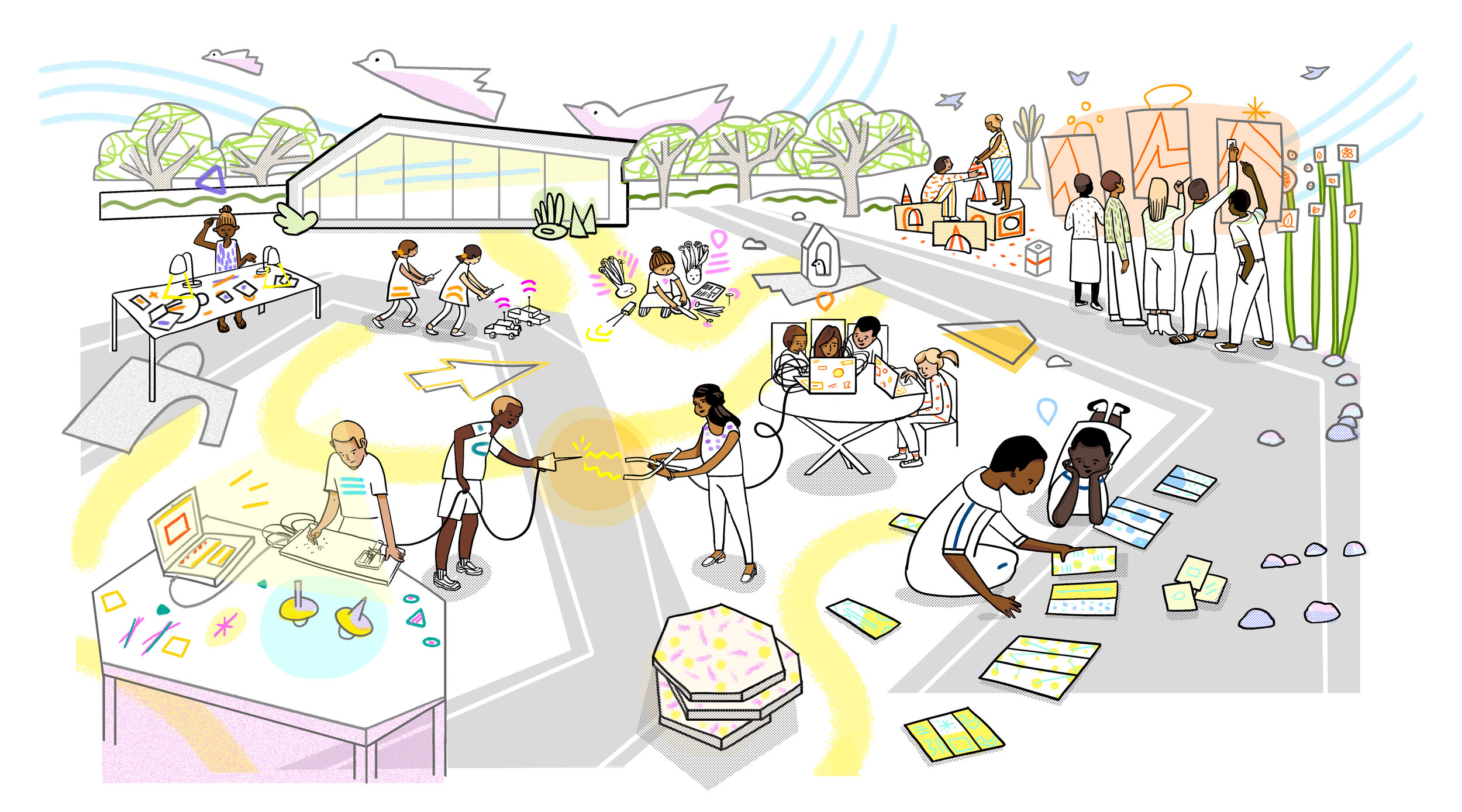
What is the School of Intercultural Computing?
We explore the intersections of culture, code, play and design in K12 Education — with the mission of advancing social justice.
The School of IC incubates computing curricula, practices and research centered on racial literacy, intercultural competence, and relationship building across axes of difference. Our goal is to support K12 communities understand how racism, biases and xenophobia functions — and use tools of liberation to “weigh” and “analyze” oppressive structures like race, as Malcolm X stressed, through computational concepts and practices.
“Intercultural”?
Unlike approaches focused on a specific, singular “culture,” “identity,” or “group,” an “intercultural” lens reflects on how a dominant culture operates through tacit rules, hidden assumptions, and ontologies, through cultural juxtaposition and learning about other values, ways of being and knowing. This involves drawing from history and sociology and posing alignments between computing concepts and intercultural competencies.
Intercultural computing makes three shifts from some current focuses in computer science education:
From Content to Relationships.
We focus on creating relationships in learning environments and measuring outcomes, for instance, by friendships created, and less on how one feels about becoming a software engineer at a large company.
From Identity to Identification.
We focus on how racism and xenophobia often act through identifications, not simply identities. Key texts grounding this view is Racecraft by the Fields and Paul Gilroy’s work on anti-racist philosophy.
From Computer Programming to Cultural Programming.
We identify deep alignments between algorithms and culture, such as viewing law as code, race as a cultural algorithm, and situations as invoking cultural scripts.
Resources.
We are passionate about cultural expression with code, and building bridges between diverse communities through the art of computing. We’re excited to provide a range of resources to our community, which include what we’re reading and what we’re creating.
What We’re Reading.
We’re always on the hunt for old and new material that has the potential to broaden our perspectives and challenge our assumptions about race, culture, relationships and computing. Check out some of our favorite resources that have helped inform our practice and research.
Our Curricula.
At heart we’re makers, and believe that what we learn in our research can be best channeled through designing play-based resources with K-12 educators in and out of the classroom. Check out some of our curricula and other resources on our project pages.
Publications.
One of our core goals is to make contributions to the computer science education field which add value and prioritize social justice. We accomplish this by learning from our work, documenting it and sharing insights through publications. We’ve published our approach and research at HCI (human computer interaction) and education conferences.
Computing Education for Intercultural Learning.
Ian Arawjo, Ariam Mogos, Steven J. Jackson, Tapan Parikh, and Kentaro Toyama. Computing Education for Intercultural Learning. CSCW 2019. Best Paper Honorable Mention..
People.
Ariam Mogos (she/her)
Ariam is a lecturer and fellow at the Stanford d.school. She is building a portfolio of work around how to engage K12 communities in the creation of emerging technologies, examining our positionalities as designers, and the implications it has on society. She dreams of a world in which all young people, particularly Black, Brown and queer, have the agency to joyfully express who they are and are celebrated.
Ian Arawjo (he/him)
Ian is a PhD candidate at Cornell University in Information Science, studying computing education as a site of intercultural learning, encounter, and conflict. He previously worked with Ariam Mogos and Kentaro Toyama in Kenya to explore and research CS spaces as sites of inter-ethnic encounter. His broader work lies at the intersection of programming, culture, and history.
Let's Collaborate.
We’re always looking for new collaborators, friends and allies in this work. Tell us all about yourself, your community and how we can work together.





